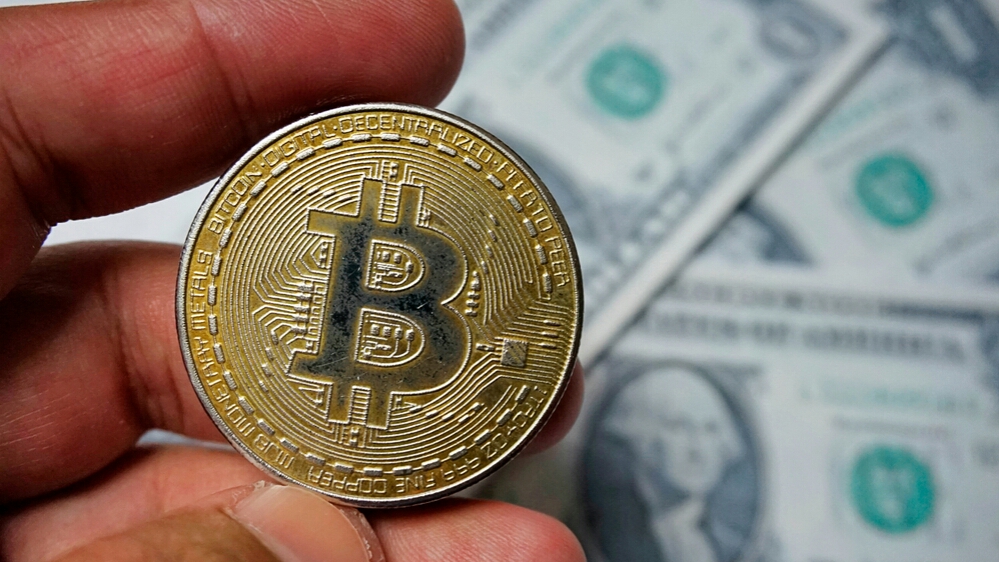[ad_1]
A CIA World Factbook entry listing nations’ current account balances shows that big economies and near-failed states share something in common – massive debt. This liability making them strong cases for hyperbitcoinization, which could be exacerbated by an anticipated global economic slowdown.
Also read: Governmental Overreach in Developing Nations Will Hasten Hyperbitcoinization
Debt-Ridden Economies Prime Cases for Hyperbitcoinization
Hyberbitcoinization theorists have little faith in the fiat establishment. They believe that state authorities, who control national currencies, will erode them to a point where citizens will be forced to ditch them for bitcoin, resulting in entire countries being powered by peer-to-peer decentralized currency.
The hyperbitcoinization theory (H-theory), published by Daniel Krawisz of the Satoshi Nakamoto Institute in 2004, predicts that bitcoin will lead to demonetization of currencies that will lose value, as people settle for bitcoin as a superior option. Bitcoin will be attractive as it is not subject to capital controls, maintains value as fiat currencies erode, and is an inclusive financial instrument into other economies.

Though purely numeric, the CIA list, running up to 2017, details governments’ long-standing habits, from the heavy-borrowing, war-like giants at the bottom, to struggling ones in the middle and disciplined spenders at the top. “Current account balance compares a country’s net trade in goods and services, plus net earnings, and net transfers to and from the rest of the world during the period specified,” the agency explains in regards to the criterion of the list, which is calculated on an exchange rate basis.
The U.S. sits at the bottom of the intelligence agency’s list with a negative balance of -$466.2 billion, just beneath the U.K which is also wallowing in borrowed affluence with a balance of -$106.7 billion. India, Canada, Turkey, France and Australia make up the bottom eight with 11-digit negative balances.
Citizens commonly bank on their authorities to painlessly manage debt and forestall dramatic ripples in their own lifestyles. Governments, in turn, are given to their habits, from shoring up geopolitical hegemony and staging spectacles in endless wars, to printing money for bloated civil service payrolls and punishing the poorest citizens with austerity when the day of reckoning arrives.
Fiat Currency Overlords Leave Citizens Poorer
Since Jack Ma criticized the U.S. for blowing its fortune on war at Davos, the country has failed to sizeably reduce its military footprint and in fact gotten closer to confrontation with military giants like Russia, China and North Korea, with potential proxy battle zones like Venezuela emerging. The national debt incurred by the military-industrial complex is ultimately spread across households, with taxpayers on the hook for trillions of dollars of spending.
The U.S. is also notoriously oil-intensive, with 50 percent of its consumption going to oil imports. The value of the dollar is, therefore, tied to oil prices, and has depreciated as oil prices doubled between 2001 and 2006 and then went up 50 percent between 2006 and 2008, affecting domestic households through reduced purchase power. There is an upside to this however in that America’s status as one of the world’s most technologically advanced nations would work in its favor in the event of hyperbitcoinization occurring.

In countries like North Korea, military might takes primacy over the economic wellbeing of citizens. Countries like Zimbabwe are not known aggressors but military spending helps insulate the regime from economic discontent. Citizens have experienced central bank heists in two decades in which their savings were substantially eroded by questionable monetary policies.
In Venezuela, where a humanitarian breakdown is now coupled with political confrontation, citizens have resorted to bitcoin to keep their heads above the chaos. Zimbabwe has been slower to transition to bitcoin, but the perennial erosion of the currency is a strong case for cryptocurrency and an increasing number of students are redirecting.
Hyperbitcoinization in oil-rich Venezuela would be driven by cheap electricity which makes bitcoin mining ideal. The more affluent states on the list, particularly the U.K, are advanced in technology, making the penetration of cryptocurrency easier, whereas their counterparts in the global south will be affected by the divide. Some rural populations in the southern hemisphere lack reliable electricity and internet connectivity, placing crypto transactions out of reach.
Hyperbitcoinization is a dystopian bet. Having nurtured the infrastructure required to disrupt fiat hegemony, Bitcoin visionaries are waiting for state actors to torch their own world and drive citizens to cryptocurrency. Unlike fiat currencies which can be inflated from reserve bank printing presses, there is a finite amount of bitcoin that can ever enter circulation. Safe from capricious state authorities and free from central control, it is emergency money, on standby for any nation whose people need it.
What do you think about the concept of hyperbitcoinization and which countries are mostly likely to be affected by such an event? Let us know in the comments section below.
Images courtesy of Shutterstock.
Express yourself freely at Bitcoin.com’s user forums. We don’t censor on political grounds. Check forum.Bitcoin.com
[ad_2]
Source link
